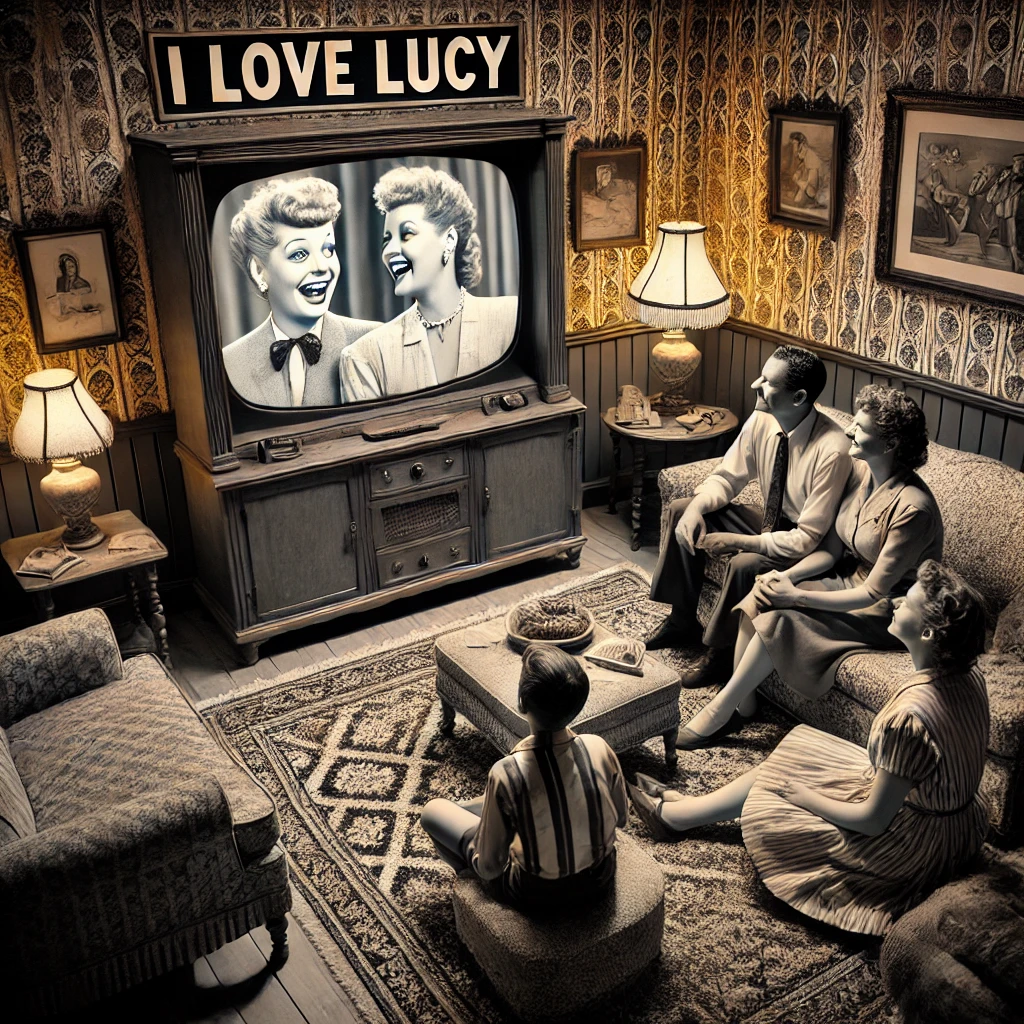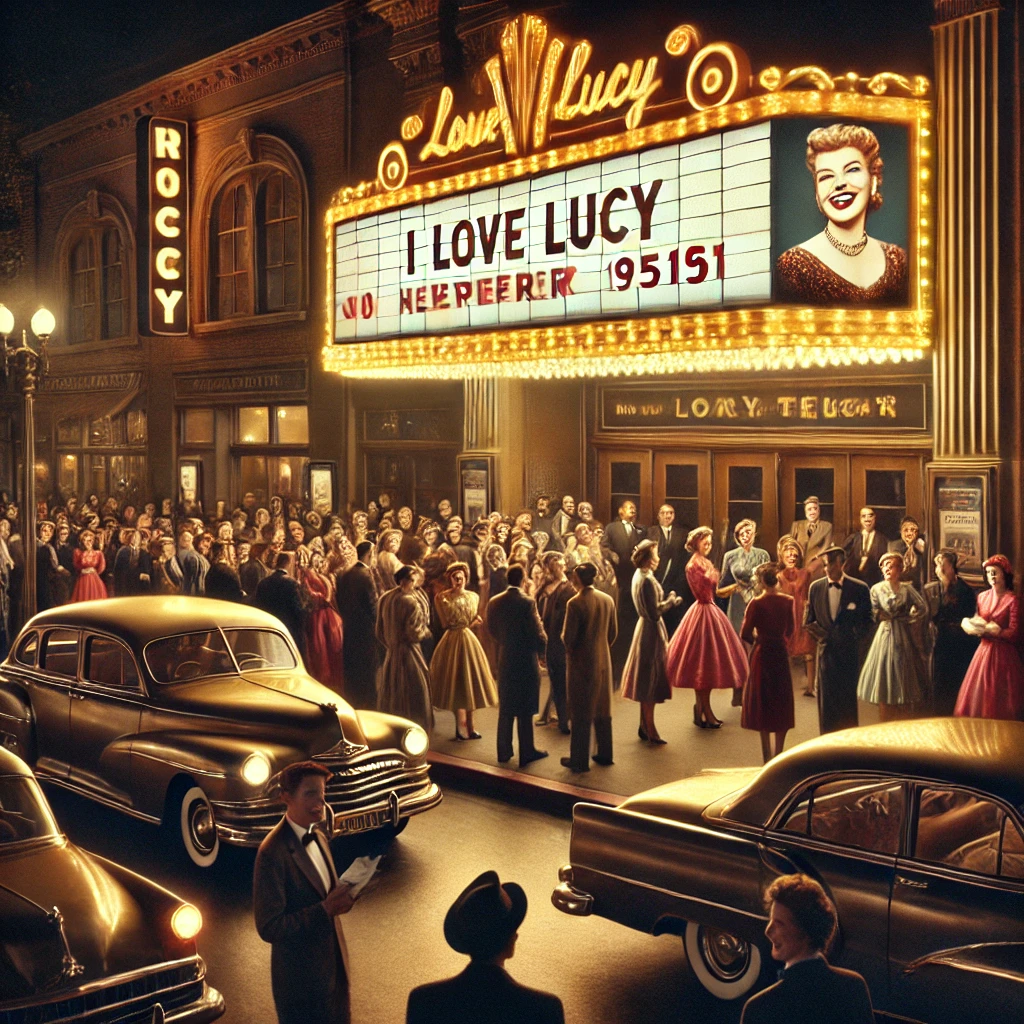On October 15, 1951, the first episode of I Love Lucy aired on American television, marking a significant moment in the history of comedy and television production. Starring the iconic Lucille Ball and her real-life husband Desi Arnaz, the show quickly captured the hearts of audiences across the nation. Blending humor, innovation, and groundbreaking storytelling, I Love Lucy not only became a classic but also laid the foundation for future sitcoms and changed the landscape of television forever.

The Concept and Creation
The genesis of I Love Lucy began with Lucille Ball’s desire to create a show that would highlight her comedic talents and feature a strong female lead. The concept revolved around the misadventures of Lucy Ricardo, a quirky aspiring actress married to Cuban bandleader Ricky Ricardo. The idea of showcasing a mixed-ethnicity couple was groundbreaking for its time, and the chemistry between Ball and Arnaz added an authentic and relatable dynamic to the show.
Before its debut, the show faced significant challenges, including the skepticism of network executives who were unsure about the viability of a television show starring a married couple. However, Lucille Ball’s determination and Desi Arnaz’s business acumen convinced CBS to take a chance on the project. With the addition of writers and producers who understood the nuances of comedy, I Love Lucy was born, ready to break new ground in television history.

A Breakthrough Premiere
The premiere episode of I Love Lucy aired on October 15, 1951, attracting an unprecedented audience of over 15 million viewers. This instant success was a testament to the show’s relatable humor and the magnetic performances of its stars. Lucille Ball’s physical comedy and impeccable timing, combined with Desi Arnaz’s charm and musical talent, created a unique blend that resonated with viewers. The show quickly became a cultural phenomenon, garnering critical acclaim and numerous awards.
Each episode presented Lucy’s hilarious schemes and misadventures, often involving her attempts to break into show business despite Ricky’s objections. The comedic situations, coupled with heartfelt moments, captured the essence of the American experience during the post-war era. Themes of love, friendship, and ambition resonated deeply with audiences, contributing to the show’s widespread popularity.

Innovations in Television
I Love Lucy is often credited with revolutionizing the television industry, particularly in its production techniques. The show was one of the first to be filmed before a live studio audience, allowing for authentic audience reactions that enhanced the comedic timing. The laughter and applause from viewers created a lively atmosphere that became a hallmark of the series.
Moreover, the show pioneered the use of multiple cameras in filming, a technique that allowed for dynamic shot composition and smoother transitions. This innovation not only improved the quality of the show but also influenced future sitcoms and television productions. The format established by I Love Lucy became a blueprint for many shows that followed, setting new standards for television production.
Enduring Legacy
The impact of I Love Lucy extends far beyond its original run, which lasted until 1957. The show has been lauded for its groundbreaking representation of women, showcasing Lucy Ricardo as a determined, ambitious character who challenged societal norms. Lucille Ball’s portrayal of Lucy became an iconic symbol of female empowerment, inspiring countless actresses and comedians.
The premiere of I Love Lucy on October 15, 1951, marked a transformative moment in television history. Lucille Ball and Desi Arnaz’s innovative approach to comedy and storytelling not only entertained millions but also reshaped the television landscape. As we reflect on the show’s enduring legacy, we recognize its influence on the entertainment industry and the cultural shifts it inspired. I Love Lucy stands as a testament to the power of laughter and the importance of representation in media, continuing to inspire and entertain audiences around the world. The legacy of this beloved series serves as a reminder of the enduring impact of great storytelling in shaping our shared cultural experiences.
